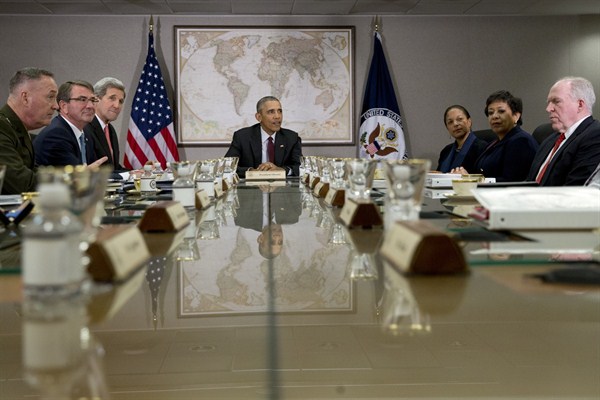America’s role in the global security system, first forged in World War II and solidified during the Cold War, is changing. After decades in which the United States was relied upon to manage regional security, other nations are now concluding that they can get by without deferring to Washington. At the same time, America’s adversaries, whether Russia and China or nonstate enemies like al-Qaida and the self-declared Islamic State, have found ways to avoid American strengths and capitalize on American weaknesses.
Internally, Americans are less willing to defend far away places at the expense of domestic needs. They increasingly ask themselves whether U.S. global activism, clearly a temporary expedient while the world recovered from World War II and during the Cold War, should be accepted as a permanent burden. In other words, they wonder if the benefits of global leadership are worth the costs. Meanwhile, hyperpartisanship engulfs and paralyzes American security policy. In 1947, Sen. Arthur Vandenberg, a Republican, famously said that partisan politics must stop at the water’s edge. Now they seem to intensify at the shoreline.
This combination of external and internal pressure creates four huge challenges that American strategists face as they attempt to navigate changes in the global security system. These challenges affect every major security decision and hinder the chances of success across a range of crises and conflicts. Soon they will drive the efforts of the next president to define the direction that the United States takes in the world.

